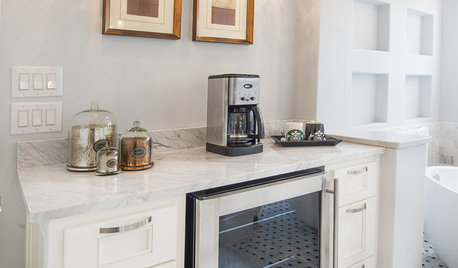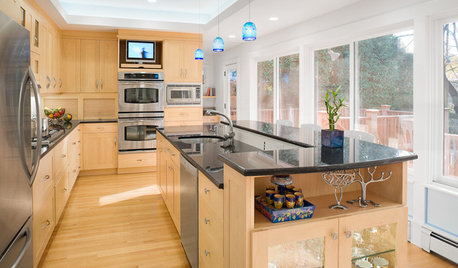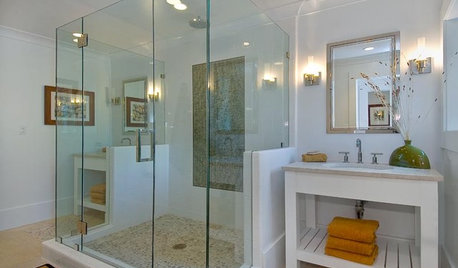Well and septic....someone please explain...
misa
17 years ago
Featured Answer
Sort by:Oldest
Comments (22)
lyfia
17 years agograywings123
17 years agoRelated Discussions
Explain definition of accoutrement please
Comments (2)Not living in Hearst Castle is why I spend most my time at garden junk forum, lol. I believe that accoutrement in the common usage is a fancy word for equipment or things for a particular usage or activity. Its a good word, I like it. kathy...See MorePlease, please explain--Cruising YardShare...
Comments (1)Yardshare has a space on it for providing comments on the presented work, but I didn't see these comments posted there....See MoreWell, this explains a lot...
Comments (34)I love my iJoy massage chair! I'm wondering if something similar would be helpful to you folks with FMS and other assorted nasties? I have a couple of chronic problems (interstitial cystitits, arthritis) and my insurance used to pay for massage, which I found of enormous help in the overall pain management scheme. Well, no more, so Dh bought me a massage chair for my birthday last year and while not the same as human massage, it is a great help. It is wonderful just for relaxation and getting your circulation going; I always feel refreshed and invigorated after using it. When I have been gardening, painting, etc. and feel my back twinge I go straight to the chair and it seems to put everything back in the right place. (I don't have the leg massager - I imagine the full sized massage chairs are even better.) DH bought it off CL for less than the cost of 2 massages. Like I said, it's not the same as a real massage but on the other hand it is always there when I need it. I use it daily - sometimes more. Truly, a worthwhile purchase. I try to walk few miles everyday and practice yoga (a little every day and one long class per week.) My weight is low, probably due to genetics and cystitis killing my appetite. I should do some weight training but I hate it (and much of yoga is weight bearing anyhow.) BTW, I'm almost 52 and no sign of menopause (and I'm very ready to get over my moon times!) I have also read the Sarno books and took them very much to heart. I *want* to believe, but the long term effect has been negligible. The idea that I have the power to easily control my pain is so tantalizing! Here is a link that might be useful: iJoy massage chair...See MoreKitchens - Best Tips - Please Explain to a Newbie :)
Comments (14)Thanks for asking about the Advantium. I've been curious and after doing a search on Google, found some really terrible reviews of the Advantium 120 (though reviews may have been a bit old). Seems like there were positive reviews of the Advantium 240 which is much more expensive. Though I was thinking about the Advantium, think I will stick with a relatively inexpensive Microwave ($100-$150) and put it on an open shelf - easy to replace if it fails. This doesn't solve problem of a second oven which isn't a hard requirement for me but thought it would be nice to have. Think a "nice to have" doesn't justify costs for me - always tradeoffs. So I will be sure to get a nice range with good size oven that has good reviews and it probably won't be GE since the complaints also were about GE customer service (- note beware of any GE rebate offers, MANY have been tricked - do a google search and find out how). Thanks again....See Moreklimkm
17 years agoquirkyquercus
17 years agohousenewbie
17 years agouncledave_ct
17 years agosue36
17 years agoklimkm
17 years agomisa
17 years agoklimkm
17 years agologic
17 years agojohnmari
17 years agokitchenshock
17 years agotom418
17 years agoinfodivamary3
17 years agopkguy
17 years agochristopherh
17 years agoinfodivamary3
17 years agosharon_sd
17 years agoklimkm
17 years agologic
17 years ago
Related Stories

COFFEE WITH AN ARCHITECTArchitecture Explained in Venn Diagrams
An analysis of the design profession using pure geometry and angst
Full Story
HOME OFFICESQuiet, Please! How to Cut Noise Pollution at Home
Leaf blowers, trucks or noisy neighbors driving you berserk? These sound-reduction strategies can help you hush things up
Full Story
BATHROOM DESIGNUpload of the Day: A Mini Fridge in the Master Bathroom? Yes, Please!
Talk about convenience. Better yet, get it yourself after being inspired by this Texas bath
Full Story
GARDENING GUIDESHow to Keep Your Citrus Trees Well Fed and Healthy
Ripe for some citrus fertilizer know-how? This mini guide will help your lemon, orange and grapefruit trees flourish
Full Story
UNIVERSAL DESIGNHow to Light a Kitchen for Older Eyes and Better Beauty
Include the right kinds of light in your kitchen's universal design plan to make it more workable and visually pleasing for all
Full Story
MOST POPULAR9 Real Ways You Can Help After a House Fire
Suggestions from someone who lost her home to fire — and experienced the staggering generosity of community
Full Story
DECORATING GUIDESPro to Pro: Learn Your Client’s Thinking Style
Knowing how someone thinks can help you determine the best way to conduct an interior design presentation
Full Story
BATHROOM DESIGNExpert Talk: Frameless Showers Get Show of Support
Professional designers explain how frameless shower doors boosted the look or function of 12 bathrooms
Full Story
TASTEMAKERSTake a Behind-the-Scenes Tour of Netflix’s ‘Grace and Frankie’
Set decorator Beauchamp Fontaine explains the design decisions behind the home sets featured in the new Netflix series
Full Story
Sales Secrets for Interior Designers
Pro to pro: Learn 3 proven techniques to please clients and increase revenues, developed by a designer with 40 years of success
Full Story





marys1000